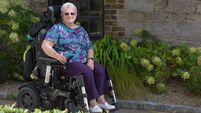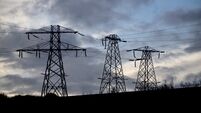Fri, 08 Dec, 2023 - 00:01
Mairead Sheehy
Patients with terminal cancer are dying in unheated homes due to high energy costs and a lack of financial support from the State, new research from the Irish Cancer Society has found.
One in three nurses providing end-of-life care to cancer patients in homes across the country say they have experienced houses without any heating, according to the research.
Already a subscriber? Sign in
You have reached your article limit.
Subscribe to access all of the Irish Examiner.
Annual €130 €80
Best value
Monthly €12€6 / month
Introductory offers for new customers. Annual billed once for first year. Renews at €130. Monthly initial discount (first 3 months) billed monthly, then €12 a month. Ts&Cs apply.
CONNECT WITH US TODAY
Be the first to know the latest news and updates














